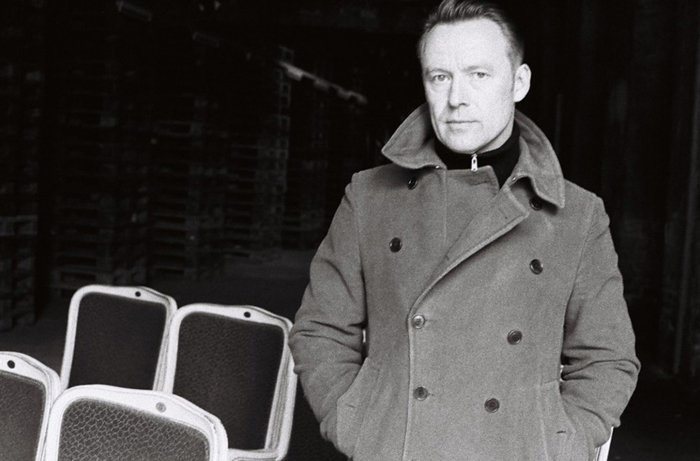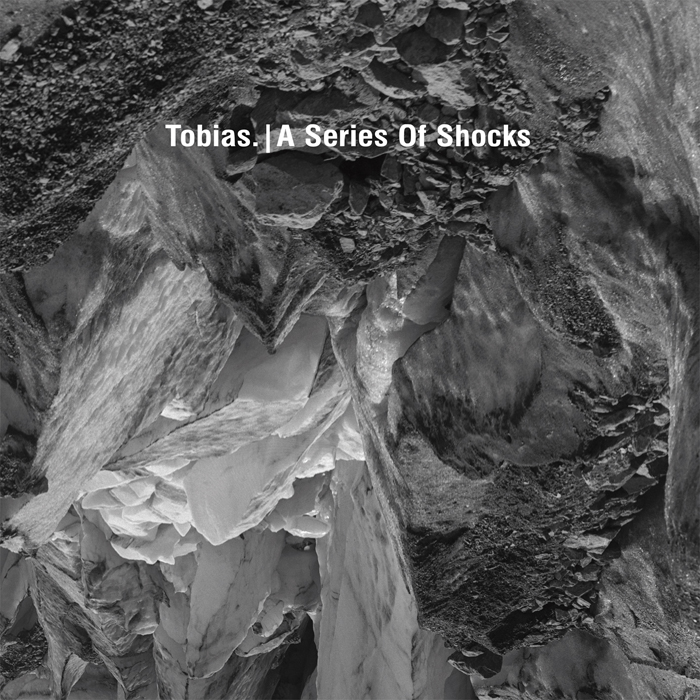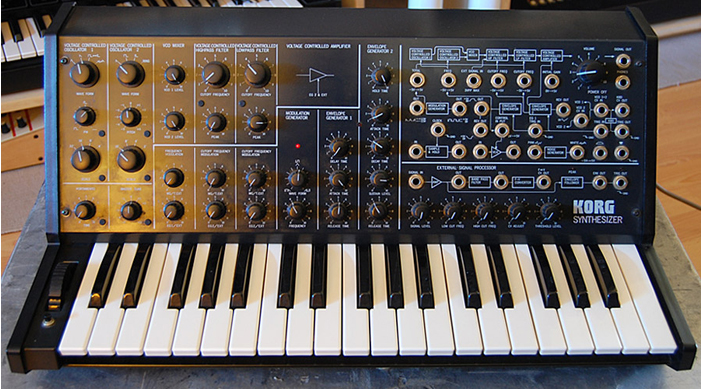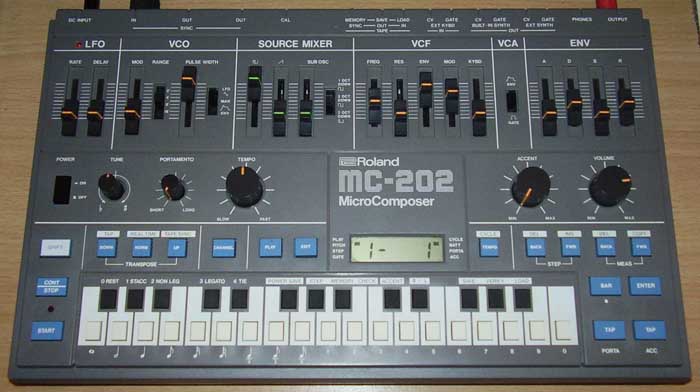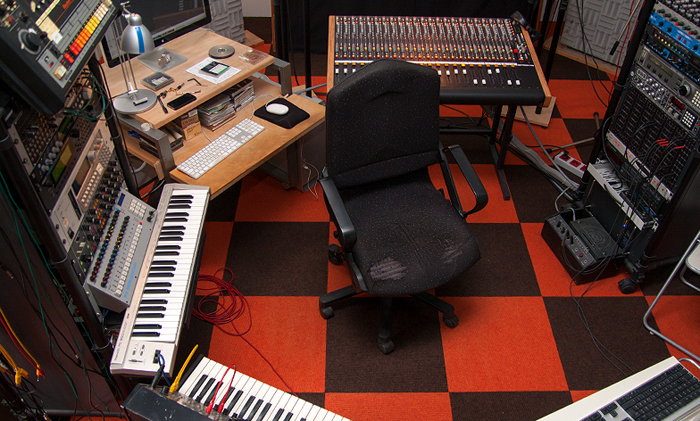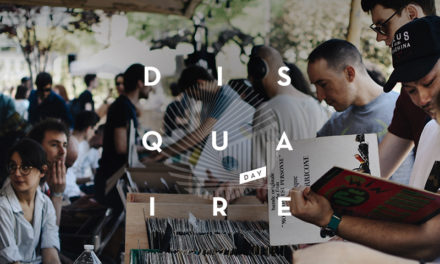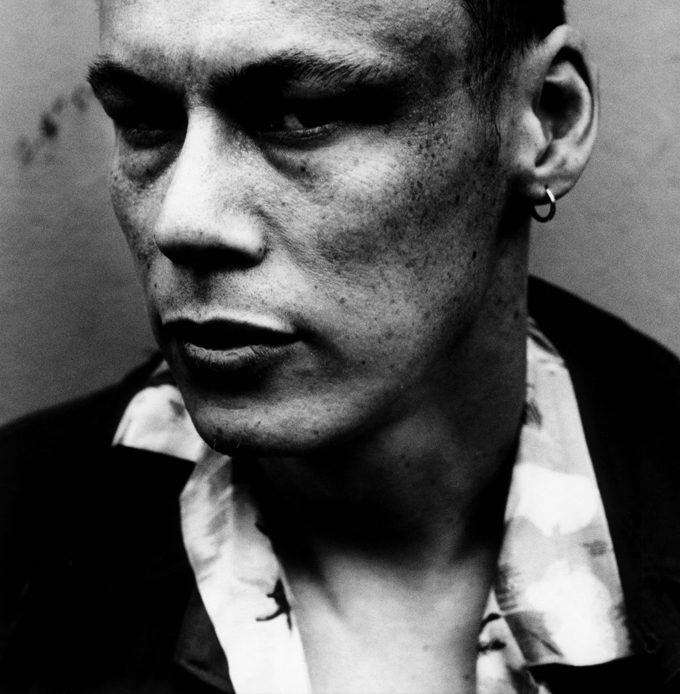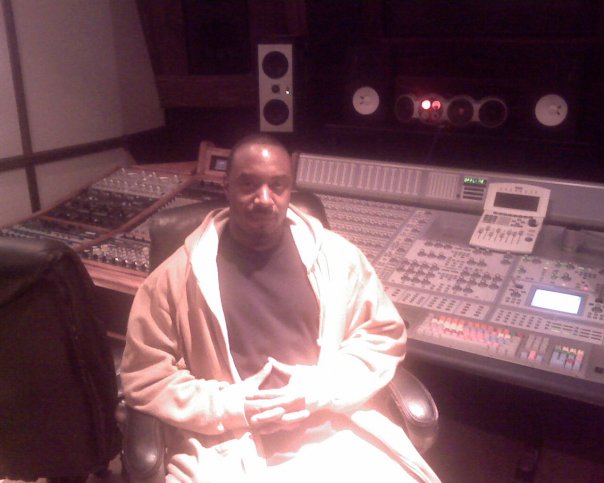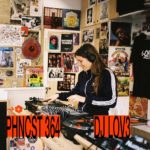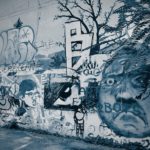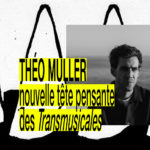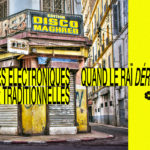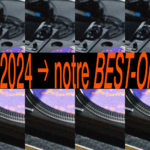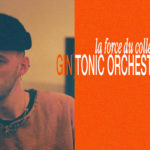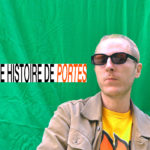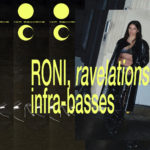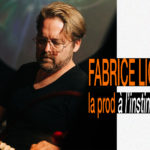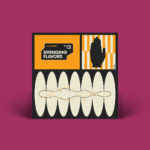When you listen to A Series Of Shocks its simple elegance seduces you. There are very few elements but everything is matching so well that its juxtaposition constitutes a really coherent piece. It would be difficult to sum up Tobias’s career in a nutshell as his numerous collaborations and aliases used in the past can tell. Amongst those collaborations we could quickly remind NSI with his studio partner Max Loderbauer, Sieg Uber Die Sonne alongside Dandy Jack or Odd Machine with the amazing Atom™ and Ricardo Villalobos. At the end of March, the artist released his second Lp under his real name : this work synthesizes perfectly his mastering in simplicity and his capacity to build something really complex starting from falsely basic sounds. The highlight of this record is characterized in the fact that even with a really powerful sound it can be listened to at home, where it takes a totally different meaning (and even more on a proper sound system). Regarding this amazing release we asked him few questions.
– Hello could you present yourself?
My name is Tobias Freunde I am a sound engineer and musician. I am working with music since 1980 when I bought my Korg Ms20. I was sound engineer before I earned money as a musician. I was working in a studio 30 years ago for 18 years. In 2003 I just moved to berlin to work on my own stuff. I had no external job nor incomes, just productions for people and my own work.
– When you started working in your studio on which kind of music were you working?
There was no techno at this time. It was about to be invented. At that time I was interested in electronic music very much. I actually wanted to learn an instrument and my brother learned guitar but it was too hard for me to synchronize my two hands and it was hurting my fingers. I found this synthesizer (the Korg Ms20) and it was playing by itself. You played one key and the device kept on playing so I could turn the knobs. So I was like a child figuring what could happen. This was fascinating.
– What was the click about starting to do music aside of your sound engineer work?
I bought this Ms20 when I still was in school. It was before I started to work. I was related to sound, technology and into instruments/ gear to try out what could happen with sound. That’s how I started to work in a studio. Before I was just interested in my music.
– For your first project your were not alone. How does it come out?
I was with Lars Müller in a project called Vo Ese but it was kind of a school projects not something you do for a career or for the fame. I never had an approach to become a star or anything similar. I rather wanted to develop my music.
– How your work as sound engineer influenced your work as producer for yourself?
– When we listen to your album, the sound is perfectly controlled; every element is at the right place. So how your work as sound engineer helped you to master your gears and your skills in doing music?
I never studied music, I can’t read notes, I can’t play piano I only listen and I compose this way. Through my experience as sound engineer I know which frequencies are too much or which ones are missing. I compose in this way. I see a picture of song and I imagine what could fit here or there but not as an harmonic way, I do it only about a frequency way, so yes it helped me a lot to integrate my skills into my music.
– You never felt prisoner of your own knowledge and your skills?
No never, I know my instruments and how they works so I have no problem for composing only with frequencies. If I am working with somebody, sometimes people give me files, most of the time Ableton files, that are in a bad shapes. I like Ableton very much but some people just don’t know how to record and the frequencies are really bad and I have to improve them. It’s not that I suffer, but the pre-work could be done in a better way. So I also teach the people about how to use it better, especially with the vocals. Sometimes I have records sounding so bad and the only thing you can do is minimize the problems. If something is badly recorded you can just minimize the damages. When it’s done it’s done.
– You produced for a lot of people. What are your main challenge when you work for them ? You help them master their gears but after this how do you help them to reach their goals?
I work only with people I am friend with so I can tell them some secrets. You have to stick to certain rules in Recordings to make things better. If there is a good basis material, I can’t do anything to improve it- but if the work is not good enough I have to tell them how to improve it for the next time.
– Are they the friends we can see on your label “Non Standard Production”?
No, NSP is for experiments, I don’t want to produce with people I don’t really know. All the projects on the label are with my friend Max (Loderbauer) or myself or friends of mine. I don’t take any productions from people I don’t know.
The only person I work with like this is Margaret Dygas, with her I produced some stuff but it’s more because I really admire how she is producing her own music. I want to be a part of that and give her some inputs. How she is producing is really special for me. It’s done in a Non Standard Way.
You started this label in 2006 but you released lot of music before under a moniker as Pink Ellen. How did you choosed to develop your own structure after all this time?
The thing is that I came in Berlin in 2003 and I splitted with a lot of things in Frankfurt from where I come from. I wanted to start something new, I was not releasing anymore under my moniker Pink Ellen. I started to release under my real name : Tobias. At that time, I actually was asked to do another Pink Ellen record for a label but they did not like the stuff so it was time for me to get rid of this.
I was in this business for long time but if you are starting a new name, you start again from zero. It was a challenge. I did not want anything from Sieg Uber Die Sonne or Pink Ellen to be involved in this. I wanted to have a fresh start and a more club-based project. I was touring a lot and I had a lot of input and influences I wanted to use. I thought it was also good to have an experimental side that I could release on my own structure with my own direction. That’s how my label was born but the stuff I get money from and the things I get gigs with are released on other labels like Ostgut Ton for instance.
– Why did you choose to produce your music under your own name after all this time? In terms of involvement it’s different.
Pink Ellen was a moniker that I had since I was in School, since my Ms 20… it’s kind of a funny nickname. Freshly out of school, you’re stil not that mature and you choose a stupid name. I wanted to get rid of this. I grew up and time passes, I did not wanted to choose an other alias so I thought it could be a good idea to release under my real name.
– Before 2006 you had a big collaborative project, Sig Uber Die Sonne which was important in your career. Now people know you mostly for your own project, how did you make the transition between your collabs and your own work?
This project was a collaboration with my friend Dandy Jack and when I moved to Berlin we finished our last album. The fourth CD. This Album was actually also one of the reasons why I came to Berlin. When I came he moved to Geneva because he felt in love with Sonja Moonear. We never splitted this project and as we had to work together he lived in my house for a long time and we produced lot of things. We never did things separately. When there was the geographic distance we had to focus on ourself. I was not there, he was not here, we could not do anything together and I had also to earn money. I decided to do something from myself.
– Before to start Tobias, you did a lot of LP’s during your career. How did you approach your first LP, “Leaning over backward”?
I did Street Knowledge before, I did things with Atoms (Uwe Schmidt), but it was always 12”, a dj format. I thought it would be nice to do something centered on the listening. An item that you could listen into your living room but also to provide afterward something you can listen in a club. I did not want to do only some club tracks that you compile in an album. For me an album is something you listen to. I thought it was the good time. I went to the Ostgut Ton booking agency and they offered me the opportunity to do an album. So I thought it was a good idea.
I already started to compose in my head. It’s maybe stupid but I started designing the album artwork before to do the music. It was the same process. I started with something really visual. I painted this in my head before or while I was doing the music. This was one whole process.
– What was whole message of this previous LP?
I had this really strong visual idea in my head before. I also like to play with words. One of my favourite band is this punk band from the 80’s, “Wire” and my favourite records from them is one line saying “leaning over backward”. I wanted to see it like and “homage” for them. I really admire their work and I liked the lyrics. This title, to me, means bending over and doing a lot of effort to do something. I won’t speak too much about this but things were happening in my life at this moment. This album has a really personal meaning for me.
– In which circumstances A series of Shocks was produced?
The thing with this album is that before I started working in it I already wanted something very strong and clubby but super simple. The less elements there was the better it would be. I just wanted to have a kick drum a bassline and something on top, “Voila”! Three elements for one song it should be enough. As it always is, I listened to the music and I heard words – in this case it was a David Bowie song. He was singing “A series of shocks”. I was playing it in my head with the whole concept of the album, hearing his voice singing. I choosed the name automatically. I had the picture then I started to work on the tracks.
– It’s not that simple to reduce music in it basis.
Yes but simple is only meaning “less elements”, but it’s really hard to not overproduce something. It’s hard to take something out and to put more and more into a song. It’s not simple at all.
Your album is club oriented because there is all the codes for club tracks but there is also something more in this complex structures based on really simple combinations. It’s rigide and every thing is at the right place, structure d with 4/4 Rhythm, yet it is still warm. How did you thought the sound texture of the album?
I use warm instruments : my 808, my analog desk and lot of things that make the music deep and complex somehow. If I just add a reverb and it has the good room to express itself it gets even more deeper, even if it’s just applied to a kick drum.
– But it’s really controlled.
I can’t do a really cold song but I always follow the same rules that I like, I try to make it as simple as possible.
– You will defend your album live. How will you transpose your studio work to the club?
I think these are really two different parts. The album stands for itself and I don’t want to transpose it live. In my live you will recognize some tracks but it will be totally different. I want improvisation when I play live. I don’t really know if I play a song, if I play the bass of an other song. I want total freedom. I am not interested to reproduce exactly what I did in my studio into a club. On stage it has to be an interpretation of my music.
– In which extent do you have freedom in your live?
I just build up the set up for my live act. I just made up a transformation. I use a Roland Mc 202 it’s a very old sequencer with a synthesizer but the sequencer only has one sequence so you have to shut it off and to sequence a new sequence again. Most of the songs of the album were done with sequencer but you can’t use it live because you can’t have only one us one loop. So I made a transformation with the inputs so I can play it with the Ableton push which allows me to play in real time with my Mc202. I combined it to my 808 and Ableton. It’s completely open. There are the drums from my drum machine that I can control with my sequencer too. You can just record and play something. It’s a challenge for me because I really avoid to have the same live set every weekend… it would be so boring. I really want to keep this state of nervousness. With all the questions, “How do I start”, How do I end” or “How will people react”, I am nervous and concentrated and this is how it has to be for me.
– How do you deal with the limits of your gear like your sequencer? How are you approaching those limits?
Actually, I like the limits because it makes you more creative. I don’t think this is good to have too many possibilities. I have tons of sound in the library but I only use my 808. I have millions of samples but I would rather take the same sound and turn it through an effect unit which is simple but which will make me more creative than using a nice sound that somebody produced. I feel kind of cheating if I take something already programmed I would rather start from zero if I want to work for myself.
– You never sample?
Of course I sample but more when I discover something and then I sample it. There is millions of sound libraries, for djs for this or for that. Lots of people use it, make something out of it and present it as their own songs. The composition is their own but the sound is just preset.
– But for a culture like Hip Hop?
Yes it’s an amazing culture but they sample things from the records. Just a bassline or three notes. It’s a hunt, something you had to look for. You really have to find your records and the good sample. I admire it a lot but if you get a sound library preproduced with a nice level of sound and the beautiful frequencies, I don’t feel it as an attractive way to produce. I am not against sampling, I am not against it, it’s just that I feel way much better when I do something by myself.
-You seem to give a lot of importance to experimentation in your work. Improvisation during your live, your work on NSP. There is not that many people experimenting nowadays in clubs. In which measure experimentation could deal with club music?
I think it too, but as long as the people are enjoying what you are doing I think you could do even more experiment. People are going to the clubs to dance, they are looking for something that satisfy them, that make them sweat, with has an impact on their body. You have to keep these rules in mind, but apart of this I think you can do a lot. You can surprise people, even only using a drum machine with a nice beat and on top of it you can integrate it something completely experimental. As long as the beat is good and there is groovy, as long as the people dance you can do whatever you want to do on top.
Robert Henke said in an old interview that it could be interesting one day if people would listen to electronic music sitting down. What do you think about this aspect of experimentation regarding your work with Max Loderbauer?
You know with their project “Sun Electric”, Max and Tom (Thiel) were considered the inventors of Chill out music. In the early days there was always a chill out room with people relaxing or having a joint or laying down for a nap. This was what I really wanted to work on with Max. I like both sides, the pumpin club side but also something completely ambient and free without beat or kick drum. A music on which you don’t have to move your body but only close your eyes and enjoy.. I think it’s essential to have this in a club. I would like to develop both sides.
– Ostgut dropped this project with the Ballet and there is no need for a kick drum for the dancer to express themselves, would you be interested to work on some projects like that?
We did the first one called Shut up Dance. We did a song which was performed by the stadtballet. It was just amazing. The music we did had no structure, it was not like four basses, it was completely free. You couldn’t count… not possible. Somehow the dancers figured out where the thing was going. They built a choreography on it. It’s wonderful to see people immerge themselves so deep into your sound with an intensity you’re not even able to reach yourself. We also worked with the choreographer of the ballet. We repeat this several times after with her.
– You first worked in the studio with max and after you proposed the stuff to the ballet.
The guideline was “Do a song for a ballet whatever you wanna do” . You’re idea of a ballet. We did something and a year later Xenia the choreographer came to us and said “ we are working on your song. Could it be possible to have it a little bit shorter?”. We just made a little fade out in the end but it was the only interaction we had together. She built a choreography on the track but we did not see the work before the presentation. We did not change a thing and they did something amazing. It’s like do your song, to drive with your car and to see the constant movement of the landscape… you see your song like a video. When four people are dancing on your songs it’s really cool. I had goosebumps.
– You never thought about cinema?
I tried but the business is very hard to penetrate. I would like to do that. I like film music a lot but since there is so much budget, the competition is really hard and I don’t like this that much.
– In which way you accept to give a little bit of your freedom to stick to something? When you’re producing for somebody you have maybe to make some compromise on some aspect. In which measure are you accepting certain compromise?
For instance, when I did an Ellen Alien record it was a challenge for me to do something that it suited to the person. I didn’t want to put my stamp on it. Of course there is a bit of me in there but I wanted to make that sound like she did it even she did not do it. I want it sounds primitive in a good way, I mean as children, which is creative and full of energy. It’s a challenge for me to remain in the dark and provide to the people I produce for something which would make them happy. I think I’m quite good at this.
I recently did a production for an English guy and he just gave me few elements of a song and I had total freedom. I did something and he was really happy with that. I can work on both sides.
When you’re producing for them, are they with you in the studio?
Well, it depends. Ellen was not there so often. Cormac was here the whole time but he was reading a book in a couch and sometimes he was coming and telling “very good”. He was always there, he was part of it and I always felt him but I never asked him to much. “Is this kick drum good ?”, “Does that sound like what you want ?”. I just did my thing and it was a really natural process. I like it when things happen like this.
When you’re producing with Max how does it works? As you seem to say, when you produce for somebody there is a passive partnership, you have the leadership and people are there, giving sometimes guidelines but when you’re in a partnership on the same level how do you work?
As you saw Max has all his stuff there but it mainly is modular stuff. I have a long midi cable, which come from his studio to mine. I have the master; I put the audio cable into my mixer to give it a start. I do something there with my drum machine, he’s doing something on his side with his stuff and we put it together. We are really relaxed with everything, we have certain idea we want to explore deeper, try out new patches he is using. We are not imposing ourself to produce songs. It’s more oriented on experiment. We are happy to hear something new, trying out something we never heard before. It’s super easy.
Did he take part in “A series of shocks”?
Yes, he usually arrived in the studio a bit earlier and when I came in he was doing something with his modular devices and sometimes I am thinking “hum… this could fit very well with my song! Don’t touch it I want to record it”. He also is a really good piano player, he can read notes and he uses his old clavinet. I can ask him “Could you play to this harmony as a bassline?” and he just do it perfectly.
You don’t have any modular patches in your studio.
No I’m not that much into this. I have a little thing called the Bld and this new sampler but it’s just a sampler. Somehow oscillators and Lfo’s or whatever, it sounds the same. It’s a kind of randomness that’s there. It’s interesting but I rather want to have concrete.
Something you can master totally?
Yes sure! That’s why Max is there, and why we are good friends. He has a very good output whatever he is doing there. But just to have this it’s to filly for me, there is too much cable and I get lost.
– It seems control in your music is really important in your creative process.
Yes totally, control and freedom. Freedom in terms of improvising, now I know the machines so well that I trust them. I know the 808 I never had any problems. I always bring it to live, everybody is telling that is really delicate device but I have this machine for 30 years now and I only had a one time issue with it. I know my gears and I know the process. I know my stuff which allows me to be free. The control is the mastering of machines. But I always wanted to put new elements like the Ableton push which has amazing features but combined with old stuff.
It’s a way to go out of your comfort zone?
Yes I think this a way to discover new things.

